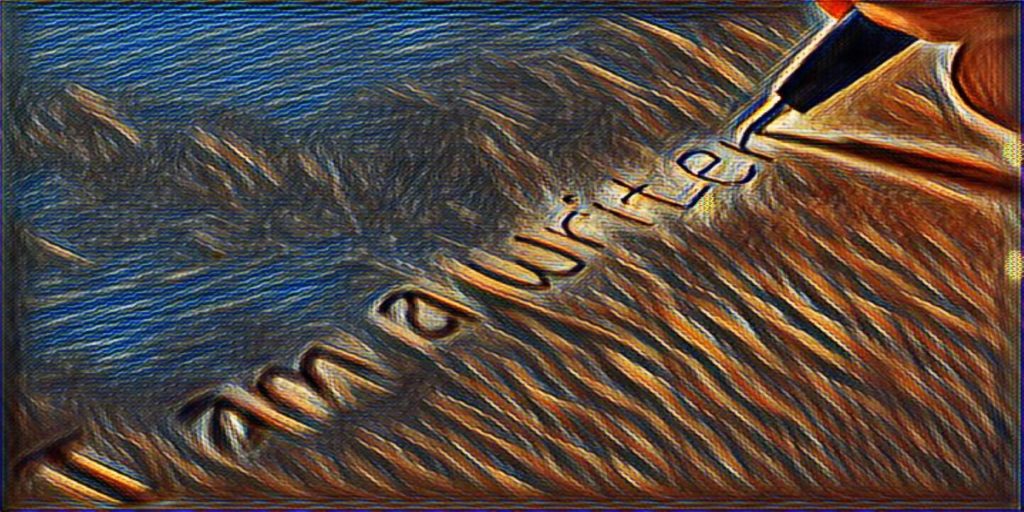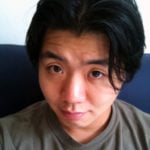It took a while for Jane Lee to figure out that her life as she knew it was over.
After the aliens came, at first Jane was as happy as everyone else on Earth that they apparently came in peace. It was only after her agent stopped returning her calls that Jane began to realize she might be out of a job.

Science fiction was Jane’s life. She wrote short stories, novels, comics, television, movies. She was the youngest winner ever of the Hugo and Nebula. She met both an ex-wife and an ex-husband at cons.
The problem was there wasn’t much call for sci-fi writers to imagine aliens when we now had them right in front of us. Why did we need stories about what life on Alpha Centauri might be like when we could now see the ruins there ourselves? Why come up with stories about killer robots when we’ve met extraordinarily sophisticated machine civilizations that just made such tales seem — what, gauche? racist? machinist? Jane might as well have been a buggy whip maker or a Betamax engineer.
There was still work out there for science fiction writers. It just wasn’t in science fiction. Jane’s friends Stanley and Estelle rapidly became pundits on the talk show circuit. Anson and Alice already had pasts in the military and in intelligence and were quickly called back into the fold. Edward and Alan had previously worked in space, and vanished into think tanks.
Not everyone was that lucky. Alec went into accounting and cut off all ties to his old writing life.
Jane’s life began to slowly collapse. A greenlit film got canned. Her wife left her. Her mistress left her.
Jane wasn’t going to become homeless straight away if she no longer wrote sci-fi. She had alimony to pay, but had enough in the bank to last her a while.
The problem was that Jane dreamed for a living. By taking away her living, they took away her dreams.
It was after a week-long drinking binge that Jane, bleary-eyed under her multi-colored hair, checked her voicemail to find 30 or so calls from her agent. The reason made her laugh sick to her stomach. Her agent was calling to remind Jane that next day, she was getting the Grand Master Award for a lifetime of achievement in science fiction.
So what else could Jane do? She went to pick up what she thought might be the last such award to ever be given. It was like accepting the gold watch she was due before retiring with the rest of her kind to the dustbin of history.
Jane staggered hungover into the convention hall. She stumbled past the jackal pack of journalists before she hazily realized there were far more reporters at this award show than at any of the past ones.
It was after they handed Jane her award that she noticed the extraterrestrials in the audience. It was the first time Jane had ever seen any aliens in person.
So that’s why my agent sounded so frantic over the phone, she thought in her stupor.
It was in a Q&A session hosted after the award show that everything changed for Jane. The reporters were really only there for the aliens, so only a few of them made even half-hearted attempts to ask her anything. When it was clear the aliens had some questions of their own, everyone else shut up immediately.
As the large red Singingwing approached toward the mic, Jane went over everything she knew about them in a blur. Descended from grazers. Used finger-like appendages on specialized limbs to drink nectar. Didn’t have mouths to talk with. Communicated with the humming of their vestigial wings. Wait, didn’t I scarf down a bunch of crudités in front of them between announcements? They found life that ate other life a bit revolting, right? Was that a huge faux pas? Never mind, they forgave that fact in other species? Right?
The Singingwing chirped. The alien’s mechanical interpreter spoke her question out loud in a jewel-like melodious voice.
“Where do you get your ideas from?”
“Schenectady,” Jane blurted out without thinking. (She lifted that from Harlan Ellison. Good writers borrow, great writers steal.) She started to correct herself to give a real answer, but the Singingwing, to Jane’s surprise, seemed to understand the joke and laugh.
“By the way, it would mean the world to me if you could autograph my copy of ‘Invisible Light.'”
“Um. Of course,” Jane said. “Who should I make it out to?”
“Fhhzzzthrr.”
“…How do you spell that?”
“Fhhzzzthrr.”
After one of the machine intelligences stepped up to the mic to not so much ask a question as to offer a fairly convoluted theory that romantically linked two of the main characters of Jane’s show “Strange Angels,” it dawned on her who she was dealing with.
Janes was dealing with fans.
It was with the last question, from a cyborganic gasbag, that Jane saw her old life end and a new life begin.
“So what are you working on now?” they asked.
Later, Jane wondered if the entire rigamarole was the sort of thing these aliens did whenever they encountered an infant species like ours. The kind of gesture that helped spark the drive for us to keep going, even when it seemed that others before us had already done whatever we might want to do and gone wherever we might want to go.
Jane didn’t care. She was dreaming again.
“Well, you see,” she said, “it starts beyond the edge of known space…”
Jane’s agent expected the story would fetch an astronomical advance.
An earlier version appeared in Scientific American, 2011.
Edited by Marie Ginga
Charles Quixote Choi is a science journalist who has written for The New York Times, The Washington Post, Science, Nature, Scientific American, Popular Science, Inside Science, Wired.com and Space.com, among others. He has also traveled to every continent and holds the rank of yondan in the Toyama-ryu battodo style of Japanese swordsmanship. His first sale, "By the Will of the Gods," appeared in the January-February-2021 issue of Analog.

